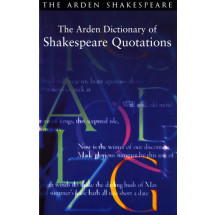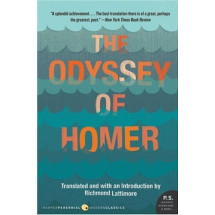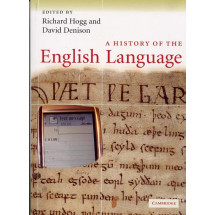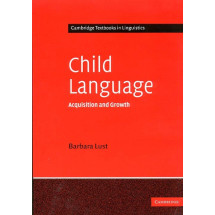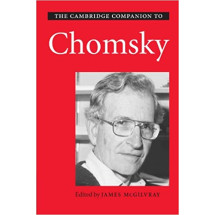Beginning with more accessible critical approaches and gradually introducing more challenging critical perspectives, "Theory into Practice" provides extensive step-by-step guidance for writing literary analyses. This brief, practical introduction to literary theory explores core theories in a unique chronological format and includes an anthology of relevant fiction, poetry, and nonfiction to help bring those theories to life.
Remarkably readable and engaging, the text makes even complex concepts manageable for those beginning to think about literary theory, and example analyses for each type of criticism show how real students have applied the theories to works included in the anthology. Now updated with the latest scholarship, including a full discussion of queer theory and increased emphasis on American multicultural approaches, "Theory into Practice" provides an essential foundation for thoughtful and effective literary analysis.
--This text refers to an out of print or unavailable edition of this title.
1. THE RELATIONSHIP OF READING AND WRITING.
Reading and Writing in College.
Engaging the Text. Shaping a Response.
Helping the Process. Summing Up.
Suggested Reading.
2. FAMILIAR APPROACHES.
Conventional Ways of Reading Literature.
Conventional Ways of Writing about Literature. Summing Up.
Glossary of Terms Useful in Conventional Criticism.
Suggested Reading and Resources. Model Student Analysis.
3. FORMALISM.
Historical Background.
Reading as a Formalist.
Writing a Formalist Analysis.
Glossary of Terms Useful in Formalist Criticism.
Suggested Reading.
Model Student Analysis.
4. PSYCHOLOGICAL CRITICISM.
Historical Background.
Practicing Psychological Criticism.
Writing Psychological Criticism.
Glossary of Terms Useful in Psychological Criticism.
Suggested Reading.
Model Student Analyses.
5. MARXIST CRITICISM.
Historical Background.
Reading from a Marxist Perspective.
Writing a Marxist Analysis.
Glossary of Terms Useful in Marxist Criticism.
Suggested Reading.
Model Student Analysis.
6. FEMINIST CRITICISM.
Historical Background.
Reading as a Feminist.
Writing Feminist Criticism.
Glossary of Terms Useful in Feminist Criticism.
Model Student Analysis.
7. READER-RESPONSE CRITICISM.
Historical Background.
Making a Reader's Response.
Writing a Reader-Response Analysis.
Glossary of Terms Useful in Reader-Response Criticism.
Suggested Reading.
Model Student Analysis.
8. DECONSTRUCTION.
Historical Background.
Practicing Deconstruction.
Making a Deconstructive Analysis.
Writing a Deconstructive Analysis.
Glossary of Terms Useful in Understanding Deconstruction.
Suggested Reading.
Model Student Analysis.
9. CULTURAL STUDIES: NEW HISTORICISM.
An Overview of Cultural Studies.
Assumptions, Principles, and Goals of New Historicism.
Historical Background.
Reading as a New Historicist.
Writing a New Historicist Literary Analysis.
Glossary of Terms Useful in New Historicist Criticism.
Suggested Reading.
Model Student Analysis.
10. MORE CULTURAL STUDIES: POSTCOLONIALISM AND MULTICULTURALISM.
Postcolonialism.
Historical Background.
Basic Assumptions.
Reading as a Postcolonialist.
Glossary of Terms Useful in Postcolonial Studies.
American Multiculturalism.
African-American Literature.
Reading as a Multiculturalist.
Writing a Cultural Studies Analysis.
Glossary of Terms Useful in American Multiculturalism.
Suggested Reading.
Model Student Analyses.
LITERARY SELECTIONS.
Letters of Abigail and John Adams.
Jill Ker Conway, excerpt from The Road from Coorain.
William Faulkner, "Barn Burning."
Robert Frost, "Stopping by Woods on a Snowy Evening."
Ernest J. Gaines, "The Sky Is Gray." Nadine Gordimer, "Once Upon a Time." Nathaniel Hawthorne, "Young Goodman Brown." Langston Hughes, "I, Too" and "Theme for English B." Zora Neale Hurston, excerpt from The Eatonville Anthology. James Joyce, "Araby." Guy de Maupassant, "The Diamond Necklace." Edgar Allan Poe, "The Masque of the Red Death." Edwin Arlington Robinson, "Richard Cory." Alfred, Lord Tennyson, "Ulysses."
INFORMATION AT A GLANCE. INDEX.
Ann B. Dobie is Professor Emerita of English at the University of Louisiana at Lafayette where she directed graduate studies in rhetoric and the university's writing-across-the-curriculum program. She is the author or coauthor of six college writing textbooks, compiler and editor of three literary anthologies, and author of numerous articles on literature and composition.
Her latest books are WIDE AWAKE IN THE PELICAN STATE: CONTEMPORARY LOUISIANA STORIES (available in 2007) and FIFTY-EIGHT DAYS IN THE CAJUNDOME SHELTER, which will be available in early 2008. For 13 years, she served as director of the National Writing Project of Acadiana. She is now State Coordinator of the Louisiana Writing Project and a consultant to the National Writing Project.



